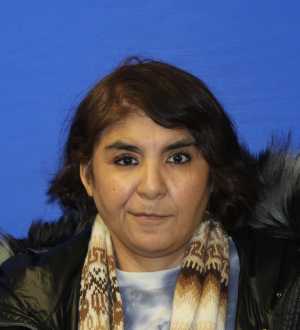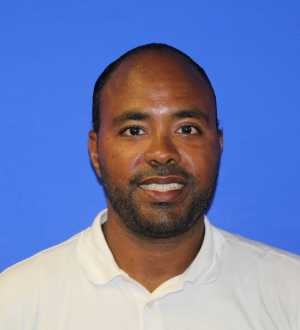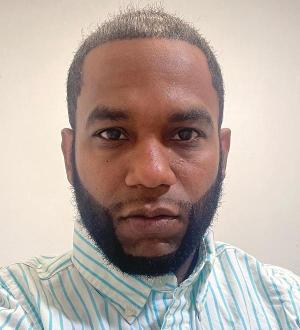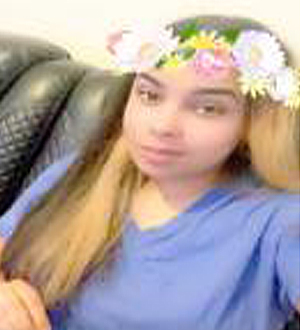Women in Antiquity
Course Info
Assignments
Content
Resources
Return to schedule of responses
Topic: Ancient Goddesses and Gods
Due: Sun Feb 16
Prompt: What do this week’s primary source readings tell us about ideas of gender in the conceoptions of the gods, especially among the Greeks?
The document for this week is:
For your online response this week, write a post that includes the following:
- What passage or detail in particular jumped out at you as you read through it?
- What do you think the author was trying to communicate?
- In your opinion, what is this document telling us about the time and place it comes from?
- What about this document seems to relate to, support, or even contradict our other readings about this time and place?
- What would you like to find out more about?
Responses for Week 3
Responses for week 3 of the course
 Mark Wilson
960
Mark Wilson
960
2025-02-08 20:23:38
Hi folks! This week, we’re looking at Hesiod’s story of the origins and, in many ways, the purposes of the gods. What do the gods represent, and how is that affected by the gods being male and female?
There’s a lot going on in Theogony—but that also means there’s a lot of items to choose one. Pick one moment and run with it. What is Hesiod trying to get across? What kind of a perspective does it give you on the Greek conception of the gods? How does what Hesiod says fit in with Pomeroy’s interpretation in Goddesses, Whores, Wives, and Slaves?
Try to interpret as well as describe your reactions. Add a new idea to the discussion, or a new angle on what’s being talked about. There's a lot readings like this can tell us, if we spend some time breaking down what it says, and what it’s trying to say.
Theogony / Hesiod
 Emma Perez Sr
1494
Emma Perez Sr
1494
2025-05-27 11:57:44
A detail that particularly stood out to me was “From Chaos came forth Erebus and black Night; but of Night were born Aether and Day, whom she conceived and bore from union in love with Erebus”. “And Earth first bare starry Heaven, equal to herself, to cover her on every side, and to be an ever-sure abiding-place for the blessed gods.” This stood out to me because it represents how the universe was created in Greek mythology by informing us of chaos , Erebus , Aether being the creators of the cosmos and the earth. I believe the author was trying to communicate thoroughly the origin of the gods and goddesses. The author describes the timeline of the beginning of the world to how every titan and god plays a role in Greek myths. This document is telling us about a time and place where there are mainly gods and no humans in sight . The gods and titans trying to find a balance with one another in this new world. This document seems to relate to Egypt because they as well have gods for the sun, sky etc. and both have a similar concept of which god plays what role. I would like to find out more about the gods and goddesses love stories with their significant other.
Week 3
 Christopher Alvarado
1161
Christopher Alvarado
1161
2025-03-13 09:24:42
The passage that I found most interesting in "Theogony" by Hesiod, that interested me the most is that in which Zeus' birth and usurpation of power is told, and more specifically, that in which Cronos swallows his children in order not to be deposed from power, as a testament to his sheer dominance in fearing deposition. The imagery is very vivid, with Cronos' desperation and how far he is willing to go in order to maintain his superiority portrayed very convincingly. But this is a futile task, for Zeus, the hidden child, manages to evade this terrible fate in order eventually to usurp him. In so doing, Hesiod seems to be recounting a familiar motif: that ambition for power knows no bounds, even reaching that of the gods. The violence and strife that attend Zeus' own seizure of power demonstrate the ancient Greeks' view that gaining power often requires both violence and cunning in order for it to be long lasting. Hesiod is presenting a world in which the gods are driven by ambition and terror, that is, by the same volatility and complexity that characterize mankind, and thus demonstrating the point that even godly power is susceptible to challenge and overthrow.
This is a critical study of the principles, values, and issues that typified ancient Greece, and specific focus is placed in their concept of power, justice, and social order. The focus placed in their violence in acquiring power signifies that the Greeks saw power as weak but imperative, upheld by violent, deceitful, and in some cases, oppressive means. This is also reflected in modern works that feature themes that include divine interference, fate, and the tenuous balance between order and chaos. The portrayal by Hesiod of such power struggles demonstrates that even the most powerful men were far from exempt from the feelings of threat and competition. My main focus is how the ancient Greece government and society were informed by their mythology and hence their approaches towards leadership positions and the ethical responsibilities that came with such leadership.
Response for Week 3
 Yeili Lainez
1041
Yeili Lainez
1041
2025-02-18 22:22:21
A passage that stood out to me in this poem was the Origin oF the Cosmos. This quote “White foam spread around them from the immortal flesh, and in it there grew a maiden” describes how a goddess was born from the members of a man, when by nature only woman can produce life, not man. My opinion Hesiod wanted to keep the male character above from the women, even though Aphrodite was a goddess. The way she was created from the castrated genital of Cronos dad shows this goddess was only allowed to have a certain amount of power not equal to the god’s. I feel that example is somewhat similar to today's society where in many cases, men still hold a higher position than women. Pomeroy’s describes Aphrodite's character exactly as Hesiod did in the poem. She was born from the foam of the sea membrane of a man; also her character is described as a sexually and fertile.
My perspective of the poem Theogony there was so much violence during that time. Most of the events in these poems involve tragedy, jealousy and death. In the Greek conception of the god’s have so much power that it turn them evil.
Week 3 Response
 Kujege Thiam
1037
Kujege Thiam
1037
2025-02-17 11:57:06
The detail that stood out to me the most was the explanation of the creation of the muses. Mythology is incredibly fascinating in explaining the ideals of a society, and how they explained the world around them. The muses being major cultural aspects of Greek society at the time is interesting. Them being direct children of Zeus and almost the first of the second generation of Olympian gods emphasizes the importance of the activities, astronomy, epic comedy etc. I think the muses being women further substantiates our conversation regarding the role of women in ancient Greek society. Women are muses to inspire the greats of society, guides for heroes, victims of the punishments from the gods on behalf of family members, means to an end. Even in their introduction Hesoid references their relation to princes and how they treat them, as the muses are also to bestow honors to princes they like.
Response to theogony
 Andrea Palacio
1026
Andrea Palacio
1026
2025-02-16 22:57:28
When trying to interpret Theogony the theme that stood out to me was how he described Zeus swallowing his wife during pregnancy because “the earth and starry heaven advised him so. Zeus feared that she would birth children who would overthrow him. Later he birthed Athena from his head hence why she was described as androgynous and having wisdom as well as other masculine attributes. The matter of him birthing Athena correlates to the text by Pomeroy as she describes in doing so it became clear that they did not want to solely attribute the power of giving life to just women. As Pomeroy describes in the text she was born fully armed and to affirm that the father is the true parent of any child. In my opinion this supports the idea that women are still secondary citizens of society. It is used to suppress the idea that women can function outside of the confines that their identities are solely based to be known as someones wife or someones mother. In my opinion Zeus birthing Athena is used as a reminder that women are here to supplement there male counterparts but never to surpass whether they are mortals or Gods.
Theogony week 3
 Veronica Castaneda
1025
Veronica Castaneda
1025
2025-02-16 22:38:45
Hesiod Theogony is a synthesis of various Greek traditions about the Gods presented as a narrative explaining their origins and how they came to establish everlasting control of the Universe. Hesiod tried to get across by making us think how Theogony is part of Greek mythology reflects the human desire to explain the entire reality.
The passage that struck me the most was the union of Gaia and Ouranos. They bore three sets of sons, the first twelve titans, three cyclops, and three hecatoncheires, which were big giants with fifty heads and a hundred arms each. The titans, cyclopses and the hecatoncheires are having their differences, but are united in their common hatred of Ouranos for imprisoning his monstrous children in secret locations under earth. Gaia is distraught and devises a plan to defeat their evil-doer father. Gaia creates a flint , and calls up her children asking them to help take down Ouranos, so they can take his place ruling the universe.The youngest and wisest Cronos, accepts the task and ambushes Ouranos, castrating him with the flint. As the remains fall into the ocean, the sea suddenly starts foaming creating the Goddess Aphrodite.
My perspective of the poem Theogony as a reference to how vulnerable and powerful Gods and Goddesses can be. In Greek mythology, there is evil, but also be righteous. This poem was written based on myths he knew and recorded them in script with the intention to let the people in ancient Greece and beyond the geneaology of the Gods and Goddesses in mythology..
Reading Response Week 3
 Melvin Beltre
1022
Melvin Beltre
1022
2025-02-16 21:52:43
Greetings classmates and professor,
The reading given was vast, with many interesting proems, but from all the proems, the one that caught my eye would probably be “The Offsprings of Primordial Gods.” The reading talked about the terror of the gods and the never-ending conflicts going on. From all the conflict happening, I think Cronos, who then defeated Uranus, was extremely interesting. Uranus, who trapped and mistreated his kids because. He fears their strength. This made Gaia mad and told Cronos to defeat Uranus, which was successful. This gave power to Cronos to rule, which the text foreshadows, with Cronos meeting the same fate as his late father, which we all know will be Zeus. The author, in a way, shows the cycle between the fathers and sons with greed to stay with power. It led to them doing anything possible to stay in control. And their fear of losing it. I say it does contradict some readings. Families have a strong bond, especially the leaders of the households, so the idea of a ”betrayal” is very different from some of the readings we’ve read. I would like to understand more of Cronos's emotions, but as well as Gaia, they are very interesting characters.
Reading Response Week #3
 Brenda Rodriguez Aguilar
1005
Brenda Rodriguez Aguilar
1005
2025-02-15 11:35:16
Good Afternoon
The passage that caught my attention was the part when explaining the offspring of the Olympains when Zeus swallowed her wife so he could give birth to his children, the quote that particularly resonated with me was the following one “But Zeus put her into his own belly first, that the goddess might devise for him both good and evil.” That quote explained why Athenas had very strong masculine characteristics, as well as Feminine traits.
I believe that the author wanted us to understand due to the exceptional way that Athenas was born and define her unique characteristics and traits that she had. I feel like it was pretty crazy to imagine a God be able to give birth due to the anatomy as a man to do that and I feel is the only way to explain Athena’s dominance masculinity trait because by that time and still nowadays women needs to be feminine and show only that side of us while most of us also have a masculine traits.
I think the readings that we have read are very similar but this one finally makes Goddess be able to be unmarried and give them a more powerful vision of them without being underappreciated but still limited to only procreate with Gods as Gods could procreate with anyone. I still wonder if we could read something about women being in higher power than men just to see how different it is from the reading of men being in major power.
RE: Reading Response Week #3
 Jairo Diaz Rodriguez
1019
Jairo Diaz Rodriguez
1019
2025-02-16 19:59:56
Hey, Brenda,
Thank you for your thoughtful response to my post—I truly appreciate it! I’m still getting familiar with the discussion board format, so I decided to reply to your comment here.
Is the myth suggesting that the gods and goddesses are cosmic custodians keeping everything in check, or is there an underlying friction between divine authority and the natural world? Do they coexist peacefully with Gaia’s creations, or are they enforcing their own version of order, possibly throwing the balance off in the process?
Response for Week 3
 Francisco Baez
1004
Francisco Baez
1004
2025-02-14 16:11:14
What passage or detail in particular jumped out at you as you read through it? The Proem of Hesiod’s “Theogony” is particularly striking, especially the lines where the Muses address Hesiod, saying, “Shepherds of the wilderness, wretched things of shame, mere bellies, we know how to speak many false things as though they were true; but we know, when we will, to utter true things.” This passage highlights the duality of truth and falsehood in storytelling and the divine authority of the Muses. The introduction to Hesiod’s “Theogony” captivates with its invocation of the Heliconian Muses, especially as they speak to Hesiod, recognizing humanity’s folly while possessing the power to reveal truths. The statement, “we know how to speak many false things as though they were true,” underscores the profound nature of narrative and the divine role of the Muses in discerning truth from illusion. This juxtaposition of truth and deception speaks volumes about the complexities embedded within myth-making.
Hesiod’s intention appears to center around illuminating the genesis and genealogy of the Greek pantheon. Through an intricate portrayal of divine lineages, he not only crafts a captivating cosmology but reflects the intrinsic value of divine inspiration in the creative arts. The Muses emphasize the transformative potential of art by granting Hesiod a “divine voice,” hinting at an inherent power within storytelling to shape reality and understanding. In examining the context of “Theogony,” one glimpses into an era where mythology served as both entertainment and education for ancient Greeks. The divine hierarchy reflects societal structures of the time, with each god and goddess assuming roles mirroring human endeavors and virtues. This narrative encapsulates the unity of nature, humanity, and divinity, a worldview distinctly Hellenic in its fusion of elements.
Comparative analyses with concurrent works, like those of Homer, reveal complementary themes and structures. “Theogony” provides the genealogical basis for many Homeric characters, creating a foundational framework that supports and enriches the broader corpus of Greek mythology. This cohesiveness underscores the importance of myth in providing cultural continuity and shared identity. Curiosity inclines one to further investigate “Theogony’s” influence on subsequent Greek literature and philosophy. Understanding its impact could illuminate its role in shaping philosophical and theological discourse, influencing thinkers like Plato and Aristotle, who grappled with notions of creation, divinity, and human agency. Exploring parallels with other ancient cosmologies could also offer rich insights into universal human attempts to understand existence.
Origins and Imaginator
 Jairo Diaz Rodriguez
999
Jairo Diaz Rodriguez
999
2025-02-11 17:04:34
The opening passage of Theogony stood out to me, where Chaos emerges as the primordial void, followed by the creation of Gaia (Earth), Tartarus (the Abyss), and Eros (Love). What struck me as particularly intriguing was the idea that Gaia could give birth to Uranus (Sky), the Mountains, and Pontus (Sea) without any sexual or intimate act. This concept of asexual reproduction in the divine realm was unexpected and seemed to challenge my understanding of creation myths. Additionally, the union of Gaia and Uranus to produce the Titans, Cyclopes, and Hecatonchires (Hundred-Handed Ones) marked the beginning of the first generation of gods, which felt both fascinating and contradictory to me.
Based on my reading, Hesiod seems to be attempting to explain the origins of the cosmos and the nature of divine power. The Theogony outlines the cosmological framework, tracing the lineage of the gods and their roles in shaping the universe. While I found some of the ideas illogical or contradictory, I believe the author was trying to convey a sense of order emerging from chaos, as well as the establishment of a divine hierarchy. The poem also seems to explore themes of power, conflict, and the relationship between gods and the natural world.
The Theogony suggests that during the time, people were deeply concerned with understanding the origins of the universe and the forces that governed their lives. The focus on divinity and the struggles among the gods may indicate a society that valued order, hierarchy, and the idea of cosmic justice. Additionally, the portrayal of gods as powerful yet flawed beings might reflect the Greeks' recognition of the complexities and contradictions in their own lives and society.
The Theogony aligns with other ancient Greek texts, such as Homer’s Iliad and Odyssey, in its depiction of gods as active participants in the world. However, while Homer focuses on the heroic deeds of mortals and their interactions with the gods, Hesiod’s work is more divine-centered, emphasizing the origins of the gods themselves. This difference in focus highlights the complementary nature of these texts: Homer explores human heroism, while Hesiod provides a cosmological framework for understanding the divine order.
While I found the Theogony to be an interesting exploration of ancient Greek cosmology, I do not feel compelled to delve deeper into this subject. The poem’s focus on divine and mythological explanations for the origins of the universe feels disconnected from modern perspectives, which rely more on scientific inquiry and empirical evidence. However, if I were to explore further, I might investigate how these myths influenced later philosophical and cultural developments in ancient Greece, or how they compare to creation myths from other cultures
RE: Origins and Imaginator
 Brenda Rodriguez Aguilar
1009
Brenda Rodriguez Aguilar
1009
2025-02-15 21:08:12
Hello Jairo,
The introduction of Gaia reproduction without intimate relationships also got me thinking what is the meaning behind the author or the myth. I believe that the idea of the first origins represent the basic elements of the environment as you mentioned "Uranus (Sky), the Mountains and Potonus (Sea)", I feel after that the Gods and Goddesses govern or reign those environments created by Gaia (Earth).
Theogony/ Hesiod
 Nalu Cabrera
998
Nalu Cabrera
998
2025-02-11 16:59:40
Dear Professor and Classmates,
A passage that stood out to me in this poem was ''But when the blessed gods had finished their toil, and settled by force their struggle for honours with the Titans, they pressed far-seeing Olympian Zeus to reign and to rule over them, by Earth’s prompting. So he divided their dignities amongst them.'' This quote to me means that when the Gods finally finished their fight with the Titans they came to terms that Zeus would be the best choice to take over all of them. They ended up choosing Zeus because of his leadership and who he is as a person they also agreed he was the best fit to know what's good for his people and the town he'll rule. The author in this part of the poem was just demonstrating the moment Zeus became the ruler and explaining who chose him and what he will he do with that power which is vital because it will show what he decides to do with the pass on ruling. This document is similar to others with Greek society because in Greek society they focus on one God taking over, this is what they believe in, Gods who play roles to make their world. From this passage and this topic I would like to learn about how women felt during this time knowing that a man was in charge of them and what position and responsibilities they had. I feel like this is unfair because why a man is in charge of what women will do in their world without knowing about them much.
Response for Week 3
 Jenisis Ayala
994
Jenisis Ayala
994
2025-02-10 07:52:39
Reading Theogony, the passage that most drastically stood out to me was how Hesiod depicts Pandora as the root of all human suffering. Zeus orders her creation as punishment for Prometheus' theft of fire, and she is described as beautiful yet deceitful, thus bringing misfortune upon men. That detail essentially showed misogyny on deep levels, reinforcing the idea that women were to blame for man's problems. Hesiod advocates for a worldview in which order and hierarchy are linked and formed by divine power, notably Zeus himself. The poem first celebrates how everything transformed from chaos to structure, and then how Zeus came to control the previous generations of gods. This implies that society is transitioning from an earlier, maybe female-dominated heritage to a predominantly patriarchal system.
From a historical point of view, Theogony provides certain information about the ancient Greek societies, particularly in the role of genders and religious beliefs. The way powerful male deities succeeded and subjugated the previous ones, many of which were female, indicates cultural stress on male authority. The emphasis on Zeus's rule further shows that the Greeks valued order, law, and leadership, similar to the current political set-up. This poem aligns with other views that focus on the role of Greek mythology in promoting hierarchies. For example, the representation of goddesses in Greek mythology frequently conveys both admiration and restriction: Athena is admired for her intelligence and warlike disposition, but she is also a virgin, which distances her from customary female responsibilities. While Theogony contradicts many prior portrayals of female deities in pre-Greek traditions, like the importance of mother goddesses in Minoan and Mycenaean civilization, it does reflect a probable change in religious thought.
Were there any later philosophers or poets who questioned Theogony's picture of women and divine authority? Also, how does it compare to creation stories from other ancient peoples, particularly those including significant female figures?